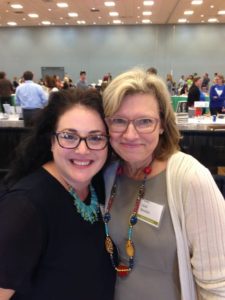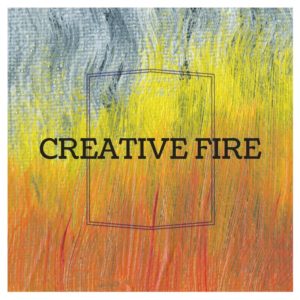One of my very favorite crowd-source exercises to throw out in a writing workshop is “Name the Man, the Restaurant, the Gas Station, and the Dog.” I make a long list of nouns and we have a free-for-all naming names. Usually I offer qualifiers like, “the preacher shouting on the street corner,” or “the only bar in town,” or “a vegetarian restaurant,” or “a dog owned by a pair of retired missionaries.” You get the idea. It’s an exercise that gets people talking, thinking, and laughing. But it’s also a great reminder of how important names are in fiction.
The right character and place names go a long way to create a universe. It doesn’t matter where on earth The Overlook Hotel is located: the immediate image is that of a hotel teetering on the edge of vast, dangerous space. East Egg and West Egg are two halves of a whole—the old rich and the nouveau riche, forever separated. The image is very simple, implying that the names were determined far back in history; East Egg is old and settled, West Egg is the place where the newly-arrived have to create their own society, just as the American western frontier was settled. Faulkner’s stories would not be the same if they were all set in Jefferson or Bedford County. Yoknapatawpha County is a name not easily forgotten.
There are so many incredible character names in classic fiction: Sam Spade; Ichabod Crane; Humbert Humbert; Major Major Major Major; Tess of the d’Urbervilles; Miss Haveshim; Bathsheba Everdene (could Katniss Everdeen be far behind?); Nick and Nora Charles; Ebeneezer Scrooge. (I culled several of these names from this list, but there are surely many more similar lists out there.) I’ll leave it to you to decide how these names work within their stories.
Every writer has to develop their own system for naming things. Research is critical. If you think you’ve come up with a great name, do a web search for it. It’s surprising how often I discover I’ve accidentally used the name of someone semi-famous. (In my first novel, my editor made me change a name because it was too similar to Liev Schreiber.)
Here are a few names I chose to use in my third novel, DEVIL’S OVEN, an Appalachian Frankenstein story, and why I chose them. I envisioned the novel as a kind of folk tale, and so I let my selections be very broad. I wasn’t worried about naming against type for effect. It’s a rural story, a kind of contemporary mountain fantasy.
Devil’s Oven is the name of the Kentucky mountain where the story takes place. The name had to be archaic and threatening, with a sense of mystery about it. The supernatural is not just suggested, but implied. And the oven part implies that things are created and tempered there over long periods of time.
Ivy Luttrell is the seamstress who not only makes clothes and does alterations for people in the area, but also finds the half-buried, dismembered body of a man on Devil’s Oven and sews him back together. (I know. But it works, I promise.) I liked the delicacy of the name, Ivy. Ivy the character is quiet and attractive and moves slowly but precisely. Ivy the plant winds itself over and through things, just like thread, and before you know it, it has touched everything. The last name, Luttrell, was a bit of a construct. The writer Daniel Woodrell is a friend of mine, and I liked the –rell ending. Luttrell has an antique, Appalachian sound to me. I have no idea if it sounds that way to anyone else.
Thora Luttrell is Ivy’s half-sister and is fifteen years older. Thora is large and plain and has a lot of health problems. She worked for many years at the DMV. I wanted her to have an old-fashioned, but very simple and unadorned name.
Bud Tucker is one of three men who are central to the story. Bud owns a trucking company, as well as a strip club in town. He’s a straightforward guy who works hard to hide his sensitivity. He wears his hair short and worries about intimidating people with his size. His father is Olney Tucker, a self-made coal baron. Olney’s name is pure country. Bud’s opposite is Dwight Yarbro, the squirrely guy who has come to the mountains because he no longer wants to deal with mid-level crime and criminals in the city. In his job as the strip club’s manager, he wears funky, elaborate cowboy shirts (I probably made a Dwight Yoakam connection here), and aviator glasses that make him look a bit like 1970s Elvis.
When I looked back at Devil’s Oven for location names, I was a bit disappointed that I didn’t get more creative than House of Waffles for a waffle house. But then, it does sound a bit against type. A bit pretentious. I only wish I had called it Twyla’s House of Waffles, or Junior’s House of Waffles.
Bud’s strip club is called The Twilight Club. I liked that the name sounds quaint, as strip clubs go. Bud is not a vulgar man, and even though he has opened a strip club, he doesn’t want it to be tacky.
The man that Ivy sews back together is a handsome devil named Anthony. She knows this because it is tattooed on his broad torso. And, yes, he has Mob connections. Sometimes you just go with the stereotype.
Choosing names involves a lot of research and a little magic. Here’s a link to a random name generator, which is a particular kind of magic. I’ve played with it some, but have found it works best for ancillary characters. You have to let it throw up a lot of possibilities if you already have the character sketched out in your head.
I prefer to target names a bit more closely. Here’s my list of qualities in descending order of consideration (always subject to change).
–Gender
–Character’s age
–Physical appearance
–Time period
–Location
–Family traditions
–Social class and cultural traditions
–Cultural ethnicity
Very occasionally a character will present herself with a first name, but rarely with a second. I spend a lot of time on baby name websites. But the true gold is on the Social Security website, which lists the most popular names by decade for the past 140 or so years.
Names go in and out of fashion, and you can get a feel for what will work as you go through the lists. I’ve also spent time looking at old English documents online, seeking out historical names. Let me make this easy for you: John, Mary, Elizabeth, and Edward were very popular for a long, long time..
Social norms change constantly, and it’s important to make sure your characters reflect the world they live in. Pick up any number of pre-WWII novels and you’re liable to find yourself in a minefield of racial and cultural insensitivity.
You can, of course, name your characters and setting anything you like. You are in control, and if a name sounds right to you, you are certainly within your rights to use it. But tread carefully. Keep in mind that no given reader will share your exact cultural background and values, and if you give a character a name that evokes an unpleasant event or stereotype—and the use of it is not a relevant subject in the story—you’ll alienate readers, and rightfully so. That is, if your story even makes it into print. I’m not talking about political correctness, but common sense. If you want to engage readers, you have to meet them at least halfway.
A name carries a lot of weight. If it’s done right, and subtly, it will instantly telegraph important information about the character or location, or even the story’s tone. Sometimes I feel like I’m running a computer program of names in my head, checking possibilities against all the variables. Because I want each name and place to come out exactly right. Don’t make the reader think twice.
What are your tricks for finding the perfect character and place names? What are some of your favorite names in fiction?
Laura Benedict’s latest novel is the suspense thriller, The Abandoned Heart: A Bliss House Novel.





